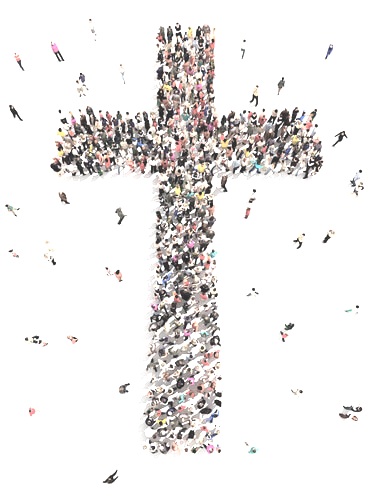
Season 2 episodes and resources.
What is your advocacy style? Some of us are outspoken and confident while others of us are more timid and slow to react. Often advocacy comes with images of anger and confrontation but what if that is not the way we are wired? Can we still be strong advocates?
Laura Hatcher of The Little Lobbyists gives us a pep talk to encourage and equip us to be voices for the disability community.
How can we best come along side individuals with differing abilities? Are we unknowingly offensive or even oppressive? A self advocate tells us.
Self determination is the process by which one controls his or her own life. Most would agree it is important but does that mean we know how make it a reality for ALL individuals with disabilities, especially those with complex communication needs?
When in need of diapering, individuals with disabilities must either be changed on the floor of a public restroom or return home. It’s time for change and the advocacy group Changing Spaces aims to bring that change.
There is a level of complexity surrounding the new HCBS waiver rulings and also discussion around the Fair Labor Standards Act. This is a must listen to conversation if you plan on utilizing government funding options for yourself or a loved one with disabilities.
Advocating for change in policy and procedures to protect individuals with disabilities who are 7x more likely to become victims of abuse.
Individuals with differing abilities have much to contribute and our communities are lacking with out their presence and influence. This is true in faith based communities as well.
Moving from segregated to inclusive school settings is often met with resistance. Does the resistance hold merit and how can educators, students, and parents come against it? What stages do schools pass through when moving toward more inclusive settings?
A new inclusionary housing development called The Kelsey is focused on creating an environment of mixed ability and mixed income residents. The Kelsey aims to be more than a housing development, they aim to be a social change organization expanding inclusion possibilities for individuals with disabilities.
Reasonably priced and easily accessible technology marketed toward able bodied individuals also have the alternative perk of bringing independence and improving quality of life for those with disabilities. Several are explored in this episode.
Effectively utilizing assistive technology for individuals with special needs requires more than access to the latest gadgets, apps, and tools. More important is the process leading to the correct gadget, app, and tool.
Accessible Educational Materials make it an exciting and promising time for those with print disabilities. Luis Perez points us to the many available resources.
Technology is no longer a perk but a must. Our guest is a special education teacher sharing ways to discover and implement technology into classrooms while on a tight budget.
Social cognition and self advocacy do not always come naturally so will need to be taught. A program at the Center for Brain Health in Dallas Texas called Charisma is teaching clients these and other social skills via a game based learning environment.
How is the adult special needs community going to receive adequate supports, maximum independence, and safety with the limited budgets available in most states?
Could technology be the answer?
Ipads and smartphones have been game changers for individuals with special needs. Device apps are providing an avenue for communication, learning and independence. BUT, there are over 2 million apps to choose from with over 1000 being added to the store everyday. How can we possibly keep up with what is available and know if they are applicable?
Jason Hague, author of Aching Joy joins us to discuss the tension we often experience when feelings of joy are paired with feelings of pain. Should we strive to feel one more than the other? Is that even possible?
What about hope? Should we allow it into our lives or is keeping low expectations our only shot at happiness?
Person centered planning is not a system or policy but rather a way of thinking. It asks that we momentarily put aside what is currently offered and focus on what is important to an individual with special needs before thinking about what is important for them to fit in the existing system.
***how to find an AAC specialist *** the importance of aided facilitated stimulation *** building communication autonomy *** avoiding prompt dependency *** overcoming common barriers teachers, parents, and support staff face in becoming fluent AAC users
Would your loved one with disabilities have the support necessary to stay safe in the event of an on campus crisis? Are you a special educator? Would you have all you need to keep your students safe? What can we be doing NOW to prepare for later?
Dr. Lauren Moskowitz, of St John’s University, is known for her work with Self injurious behavior. In this episode she helps us understand why SIB is happening and discusses ABA as a method of treatment, including finding reinforcers that work.
Sexual assault in the special needs population is high. We look at who the perpetrators are, 10 things to do when abuse is suspected, and tools to utilize before, during, and after assault.
What is the connection between autism and epilepsy? Does one cause the other? When is the first seizure most likely to happen? Are they harmful? Can they be missed? When do we need to call 911?
Assistance dogs can bring independence, safety, comfort, dignity, companionship, (and cuteness) to the team. However the process is quite lengthy and choosing the right organization is important.
We see it in the news all the time. Physical and verbal abuse of special needs individuals caught on camera. Should cameras be the first line of defense in keeping those with differing abilities safe? Is it that simple? What does the law allow? Who has access to the recordings?
This episode is a must listen from beginning to end for parents, educators, and providers.
Restraining someone against their will or placing them in an area of seclusion where s/he can not get out are still widely used methods in the special needs community.
Why?
Today’s episode addresses this question.
Wandering and elopement are stressful and scary scenarios that, unfortunately, can end tragically. Today we are taking a proactive approach and putting plans in place so our loved one with special needs can be found quickly should he or she go missing.
When 911 is called and an individual with special needs is on the scene, it can be at best confusing and at worse fatal.
It is important for caregivers and providers to prepare in advance. Today we learn how.
Identifying and recovering from trauma can be complicated for our loved one with special needs. There are only a handful of professionals in the country providing therapy for individuals with disabilities who have experienced trauma. Dr. Daniel Hoover of the Kennedy Krieger Institute (a partner of John Hopkins School of Medicine) is one of them. In this episode, he shares with us 3 red flags indicating trauma may be happening or may have happened and 3 things parents can do in partnering with the doctors to begin the recovery process.
































